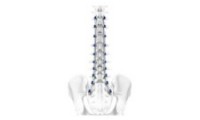-
Sanofi Issues Update on Shortages of Beyfortus for Respiratory Syncytial Virus
- Source: drugdu
- 98
- November 9, 2023
-
Amgen scores FDA approval for Stelara biosimilar
- Source: drugdu
- 99
- November 3, 2023
-
AbbVie announces positive results from head-to-head study of Skyrizi in Crohn’s disease
- Source: drugdu
- 112
- October 19, 2023
-
Lilly’s Mirikizumab Shows Long-Term Remission in Phase III Crohn’s Trial
- Source: drugdu
- 110
- October 14, 2023
-
After FDA snub, Lilly’s mirikizumab looks to regain momentum with phase 3 Crohn’s win
- Source: drugdu
- 116
- October 13, 2023
-
Salipro partners with Icosagen to develop monoclonal antibody therapies
- Source: drugdu
- 107
- October 12, 2023
-
J&J’s DePuy Synthes wins FDA clearance for TriAltis tech
- Source: drugdu
- 109
- October 12, 2023
-
analysts
- Source: drugdu
- 165
- October 11, 2023
-
Takeda to Pull Lung Cancer Drug from Market After Failed Confirmatory Study
- Source: drugdu
- 197
- October 10, 2023
-
Catheter ablation beats drugs in J&J retrospective study of AFib heart failure risk
- Source: drugdu
- 143
- October 9, 2023
your submission has already been received.
OK
Subscribe
Please enter a valid Email address!
Submit
The most relevant industry news & insight will be sent to you every two weeks.













